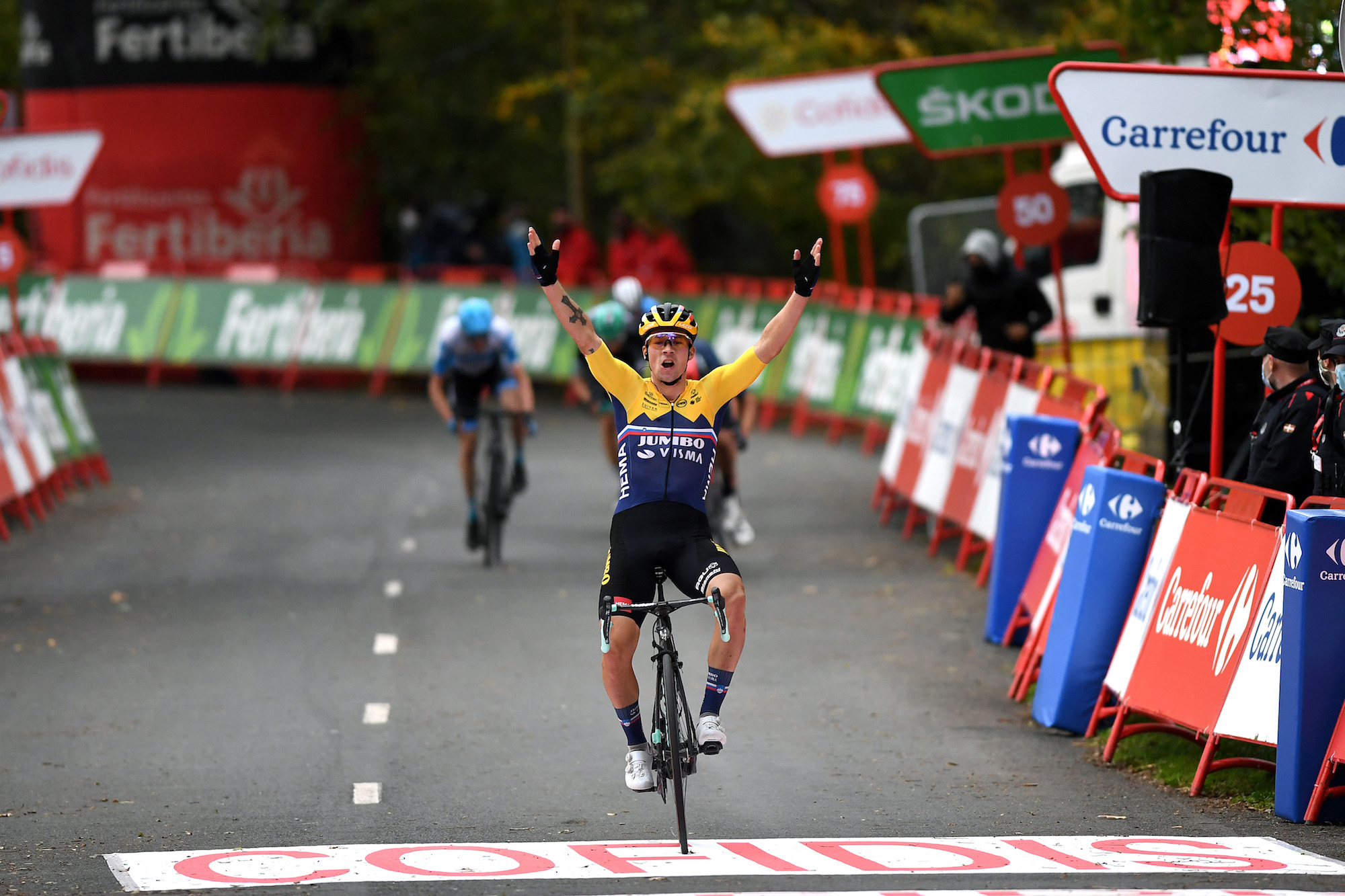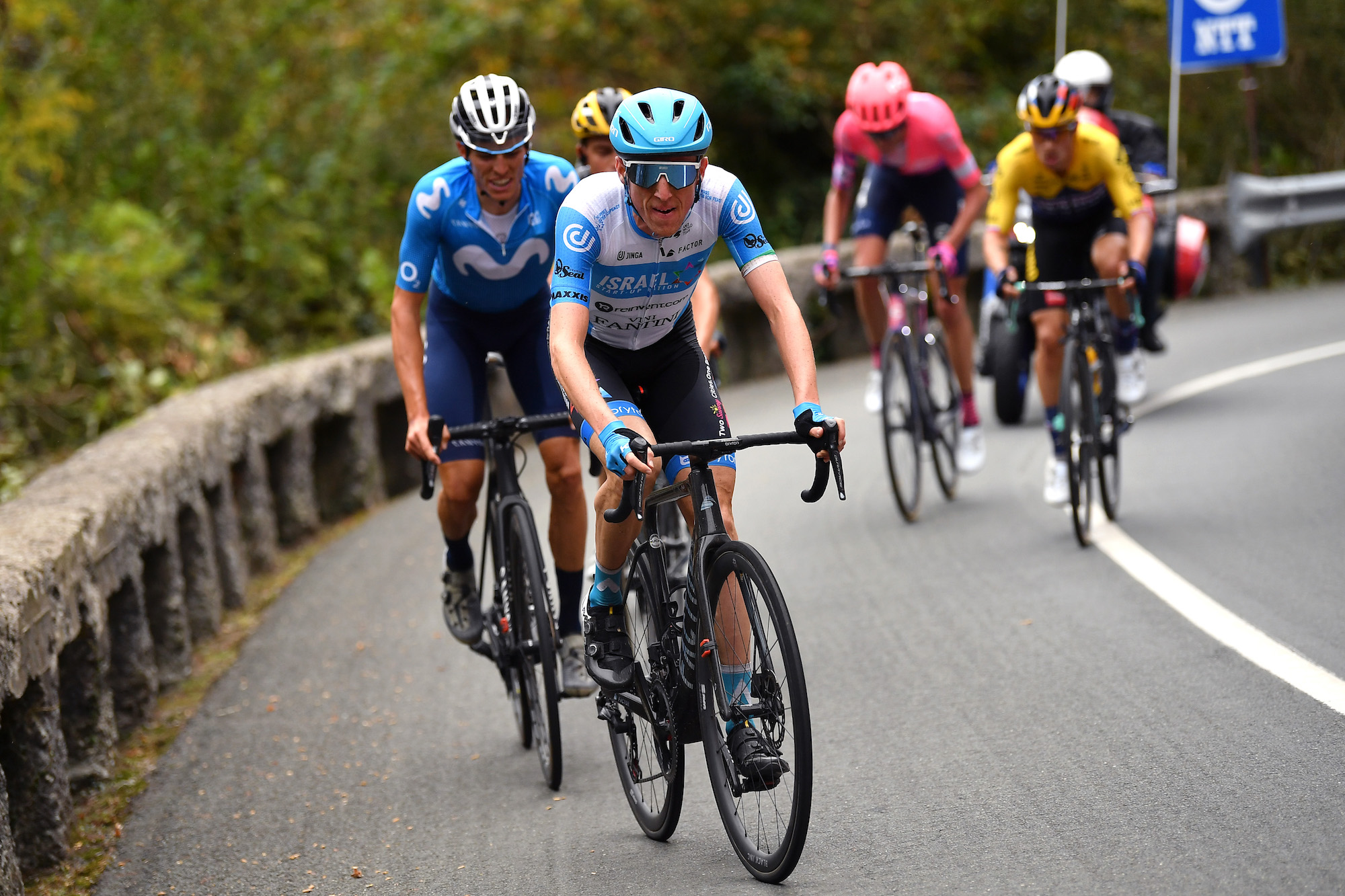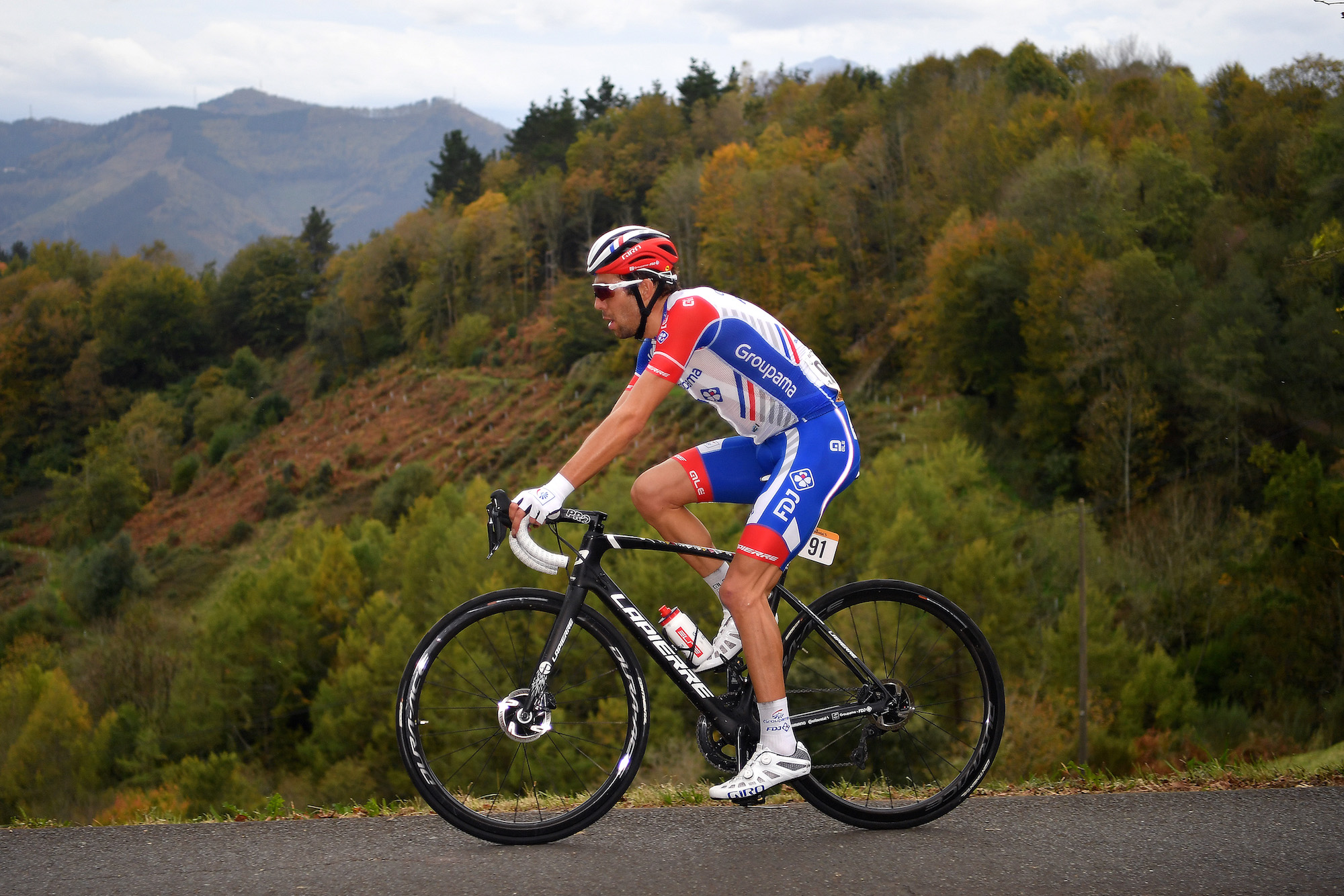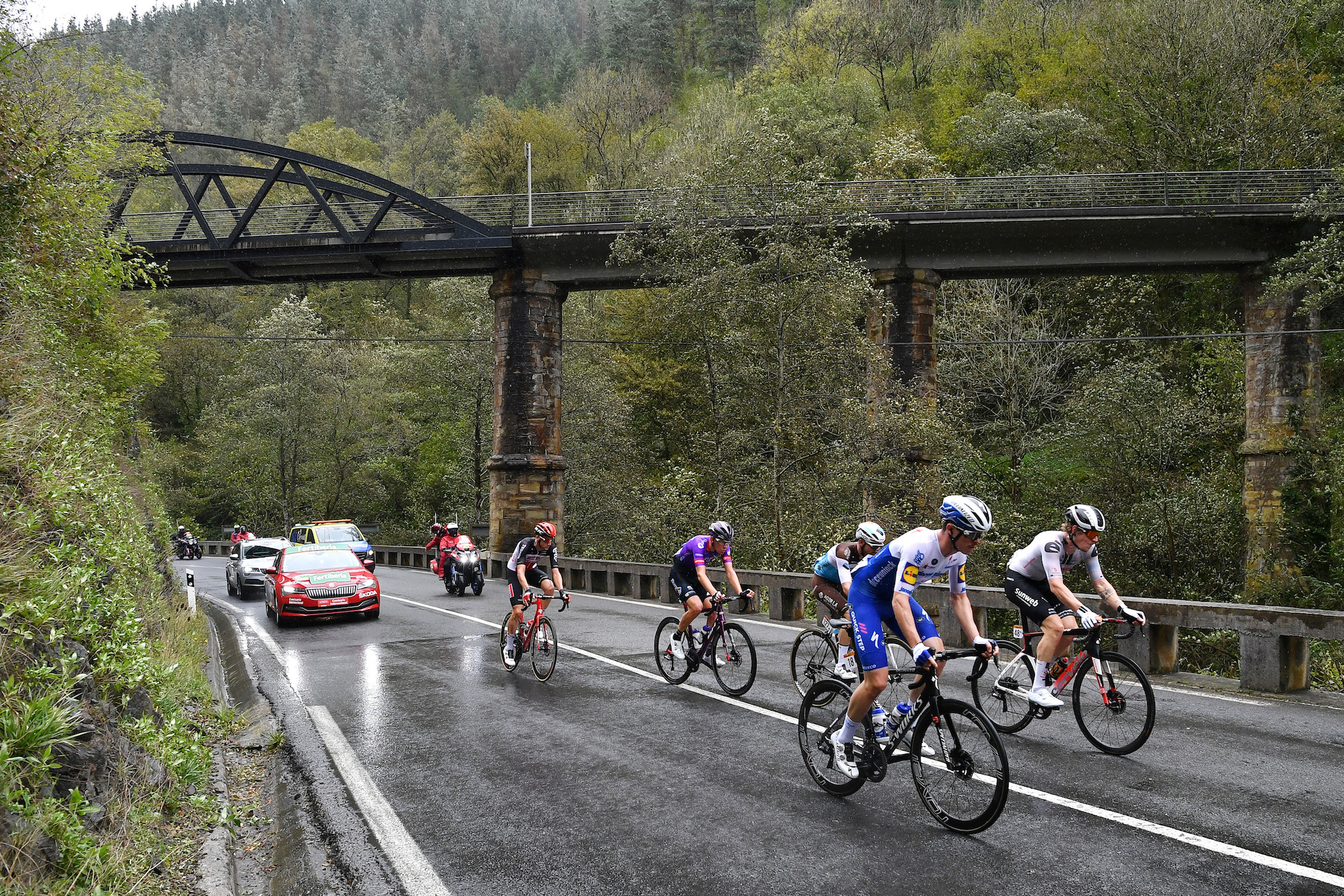Five talking points from stage one of the Vuelta a España 2020
An eventful opening stage in Spain sees a familiar winner...
Primož Roglič is back with a vengeance

On his first day back at a Grand Tour following his heartbreak at losing the yellow jersey at last month’s Tour de France, Primož Roglič (Jumbo-Visma) already finds himself back in the overall lead of a Grand Tour following victory on the first day of the Vuelta a España.
Having already immediately bounced back from that disappointment with victory at Liège-Bastogne-Liège, the Slovenian has begun the Vuelta as a man on a mission, showing no signs of either physical or psychological fatigue following the drama at the Tour.
>>> Vuelta a España 2020: Chris Froome and Thibaut Pinot lose time on day one
After making the select leading group of eight riders that summited the crested the final climb of Alto de Arrate together, Roglič launched an attack 1km from the finish, to which none of his rivals had any response.
Just as at the Tour de France, his Jumbo-Visma team were dominant. Once again it was super-domestique Sep Kuss who did the damage, although this time through a series of attacks rather than a steady grind at the front.
Tom Dumoulin wasn’t quite as strong, being dropped on the climb and finishing in a chasing group some way adrift. With him losing 51 seconds, and Roglič already in the red jersey, it seems the Slovenian will be the team’s outright leader — and the man that everyone else will have to beat.
The latest race content, interviews, features, reviews and expert buying guides, direct to your inbox!
Hugh Carthy and Dan Martin among those to emerge as overall contenders

There’s no hanging about at this year’s Vuelta. With a tough climb at the finish on the very first stage, the GC has already begun, and both a British and Irish rider were among the select few marking themselves out as possible contenders.
Israel Start-Up Nation signalled their faith in leader Dan Martin by amassing at the front on the approach to the finish, and indeed the Irishman rose to the occasion to finish third on the stage. Having not looked himself at the Tour de France, the signs are that the 34-year-old might be back to his best.
>>> Vuelta a España 2020 route: Details of the revamped 18-stage Grand Tour
Another unexpected performer was Lancastrian Hugh Carthy (EF Pro Cycling), who had the legs to put in a couple of attacks, both on the climb and the short descent after. Though the effort meant he lost a little ground at the finish, seventh place is still a very impressive finish, and an indication that Carthy might have the legs to mount a proper GC challenge.
The other riders to make the select group were: Esteban Chaves (Mitchelton-Scott), Felix Großschartner (Bora-Hansgrohe), 2018 runner-up Enric Mas (Movistar) and Giro d’Italia winner Richard Caparaz (Ineos Grenadiers).
It’s early days, but the winner of this year’s Vuelta is likely to come from one of the riders from this group.
Chris Froome is dropped
The big question of whether Chris Froome was capable of battling for overall victory was answered on the very first day of the Vuelta, as the 35-year-old was dropped out of the peloton.
Froome did not even manage to make it to the base of the final climb, with the penultimate climb of the day — the category three Alto de Elgeta — proving too much for him.
His struggles did not appear to surprise his Ineos Grenadiers team, who were in fact setting the pace at the front of the peloton when Froome was dropped, and did not let up when their rider lost contact. Evidently the plan was never for Froome to lead their GC hopes, with Richard Carapaz instead their protected rider.
In a race that the Briton has enjoyed so much success at in the past, with two overall victories to his name and three other top-four finishes on his other visits here, it’s odd to see him struggle so much, but not exactly a surprise given his long absence from racing at the highest level.
On this basis, Froome still has a long way to go in his recovery from his crash 16 months ago at the Critérium du Dauphiné. Hopefully he can stick it out for the rest of the race and get some much-needed racing in his legs, but his days as a Grand Tour contender could potentially be over.
Pinot and Vlasov among the big names already out of contention

It was carnage on the Alto de Arrate, as many of the big names identified as possible winners of the overall classification found their chances go up in smoke.
Thibaut Pinot (Groupama-FDJ) was one of the biggest losers, reaching the finish a whole 9-56 after Roglič. Though he does tend to ride well at the Vuelta, and it had been thought he might be able to put his travails at the Tour de France behind him, the Frenchman clearly does not have the legs to mount a bid for red.
>>> Five talking points from stage 16 of the Giro d'Italia 2020
Big things were expected of 24-year-old Alexander Vlasov (Astana), but he too lost a hatful of time. Perhaps still not fully recovered from the illness that forced him to abandon the Giro d’Italia, Vlasov finished alongside teammate Luís León Sanchez at 4-31.
Last year’s runner-up Alejandro Valverde (Movistar) and Tom Dumoulin (Jumbo-Visma) were also dropped, but did not lose enough time to end their GC hopes completely, ceding 51 seconds to Roglič. Both riders are wily, experienced pros who know how to manage their efforts, so could yet stay in contention and improve as the race develops.
A wet start to the Vuelta

The Vuelta a España usually takes place in baking hot sunshine, often across dry, dusty landscapes, but the circumstances of this year dictate that this year’s race will have a very different feel to it.
Taking place in October and November rather than its usual slot in August and September, and confined to the north of the country, this is going to be a colder, greyer Vuelta, with the wet and windy conditions of today likely to set the tone for the rest of the race.
It was strange to see so many riders wrapped up in rain jackets, and even stranger to see fallen leaves strewn across the road, while the top of the Alto de Arrate was dark and misty.
The rainy conditions and slippery roads made things difficult for the riders, with several going down in crashes. The most high-profile rider to suffer a fall was Dani Martínez (EF Pro Cycling), and, despite managing to get back on his bike and chase up to the peloton, had clearly been adversely affected by the crash. He was dropped on the final climb, and finished 4-29 adrift, which will likely put an end to any hopes he might have harboured of competing for the red jersey.
Having also seen his hopes to contest for a high GC place at the Tour de France also come to an end because of a crash, this will be especially disappointing to the Colombian.
Stephen Puddicombe is a freelance journalist for Cycling Weekly, who regularly contributes to our World Tour racing coverage with race reports, news stories, interviews and features. Outside of cycling, he also enjoys writing about film and TV - but you won't find much of that content embedded into his CW articles.